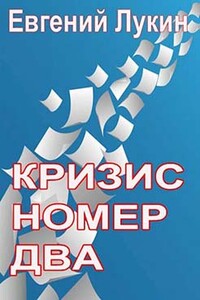ЦРУ против СССР [заметки]
1
«Daily World», January 6, 1983.
2
Nikolai V. Sivachev and Nikolai N. Jakovlev. Russia and the United States. U. S. – Soviet Relations from the Soviet point of view. Chicago University Press, 1979, 1980.
3
«In These Times», June 20 – 26, 1979.
4
A. Brown. The Last Hero. Wild Bill Donovan, N. Y. 1982, p. 833.
5
R. Dunlop. Donovan. America 's Master Spy, N. Y. 1982, p. 507.
6
«The Washington Post», June 24, 1982.
7
A. Dulles. The Craft of Intelligence, N. Y., 1963, p. 264.
8
F. Prouty. The Secret Team. The CIA and its Allies in control of the United States and the World, Englewood Cliffs, 1973, pp. 66 – 67.
9
R. Sigford. The Phetoric of the Vietnam War; Presidents Johnson and Nixon. University of Minnesota. Ph. D. 1973. p. 193.
10
W. Со1bу and P. Forbath. Honorable Men. My Life in the CIA. N. Y., 1978, pp. 300 – 301.
11
«The Nation», November 19, 1977, p. 514.
12
G. Кеnnan. The Cloud of Danger. Current Realities of American Foreign Policy. Boston, 1977, pp. 212, 210.
13
«War Report of the Office of Strategic Services». Washington 1949, p. 99.
14
D. Halberstam. The Best and the Brightest. N. Y., 1973, p. 526.
15
H. Thompson. Fear and Loathing: On the Campaign Trail 72, N. Y., 1973, pp. 403 – 404.
16
«The Washington Post», September 12, 1982.
17
G. Ford. A Time to Heal, N. Y., 1980, p. 106.
18
The Intelligence Investigations: Congress Cops Out, «The Progressive», July 1976, pp. 16 – 17.
19
«Newsweek», April 27, 1981, p. 46.
20
«The Washington Post», September 14, 1982.
21
R. Nixon. The Real War, N. Y., 1980, p. 40, 264.
22
«The Washington Post», November 13, 1981.
23
J. Gaddis. Russia, the Soviet Union and the United States. An Interpretive history, N. Y., 1978, pp. 154 – 155.
24
«Известия», 1946, 29 октября.
25
«Известия», 1947, 24 января.
26
ЮНРРА – Администрация помощи и восстановления Объединенных Наций была создана в 1943 году для целей, видных из ее названия. Совет ЮНРРА постановил, что государства, ее члены, территория которых не была оккупирована, делают взнос в ее фонд в размере двух процентов от национального дохода страны в 1943 году. Другие участники организации призывались делать посильные взносы. На деле представители США в ЮНРРА использовали помощь в попытках добиться угодных Вашингтону целей. Организация распущена в 1947 году
27
G. Kennan. Memoirs 1925 – 1950, Boston 1967, pp. 266 – 267.
28
J. Gaddis. The United States and the Origins of the Cold War, 1941-1947, N. Y., 1972, pp. 259 – 260.
29
G. Kennan. Op. cit., p. 277.
30
D. Yergin. Shattered Peace. The Origins of the Cold War and the National Security State. Boston, 1977, pp. 96 – 98.
31
F. R.: 1945, v. 3, p. 1228.
32
Final Report of the Select Committee to Study Governmental Operations with respect to Intelligence Activities. U. S. Senate. Book I, Washington; 1976, pp. 19 – 20.
33
То, что сошло для сенаторов, вероятно, оказалось слишком для американского издательства «Ридерз дайджест пресс». В отличие от седовласых законодателей, принявших вздор Розицкого как должное, ибо он соответствует стереотипам их мышления, редакторы дрогнули.
В выпущенной в 1977 году, через два года после памятных показаний Розицкого, в комиссии сената его книге «Тайные операции ЦРУ» тот эпизод был начисто лишен колоритных деталей, приемлемых на Капитолийском холме: «Тогда никто не знал, что русские делают в Берлине, и трое из нас, один говоривший на русском румын, вызвались проникнуть в русскую зону и посмотреть. Напряженно и с опаской мы потратили пять часов, чтобы перебраться через границу зоны, и провели шесть часов в Берлине. Зрительные впечатления запечатлелись у меня по сей день. Толпы немецких мальчишек и стариков, которых гнали по берлинской кольцевой дороге на восток», и т. д. «Лапти» и прочее исчезли, надо думать, под редакторским карандашом, да и «36 часов» пребывания в советской зоне. Но дух остался: «Россия идет на запад, пронеслось у меня в уме, Европа больше не будет прежней!» (Введение к указанной книге, с. XXV – XXVI).
34
«The Patton Papers», Ed. by M. Blumenson, Boston, 1974, pp. 721, 731 – 734.
35
M. Sherry. Preparing for the Next War. American Plans for postwar defense, 1941 – 45, Yale University Press, 1977, p. 57.
36
M. Mallоff. Strategic Planning for Coalition Warfare 1943-1944, Washington, 1959, pp. 523 – 524.
37
J. Burns. Roosevelt: the Soldier of Freedom, N. Y., 1970, p. 459.
38
M. Sherry. Op. cit., pp. 201, 205, 212 – 213.
39
Ibid., pp. 214 – 215.
40
F. R.: 1946, v. 1, pp. 1160 – 1165, 1125 – 28.
41
W. Manchester. The Glory and the Dream, N. Y., 1978, pp. 375-376.
42
Цит. по: «Новое время», 1980, № 8, с. 28, 29.
43
F. R., 1946, v. 6, p. 705.
44
«Containment. Documents on American Policy and Strategy 1945 – 1950». Ed. by T. Etzold and J. Gaddis, N. Y., 1978, pp. 66 – 68.
45
F. R.: 1946, v. 6, pp. 709, 699.
46
F. R.: 1947, v. 1, pp. 772, 776 – 777.
47
F. R.: 1948, v. 1, pt. 2, p. 580.
48
«Containment. Documents on American Policy and Strategy 1945 – 1950», pp. 174, 176, 180 – 181, 190, 189, 196, 197, 201 – 203
49
J. Тоland. Adolf Hitler, N. Y., 1981, p. 702.
50
«Drop Shot. The United States Plan for War with the Soviet Union in 1957». Ed. by A. Brown, N Y., 1978, p. 36.
51
F. R.: 1948, v. 1. pt. 2, pp. 666, 665.
52
«Drop Shot…», p. 6.
53
«Containment. Documents…», p. 323.
54
«Drop Shot…», p. 9-10.
55
Ibid., p. 7.
56
«Containment. Documents…», pp. 357 – 360.
57
В американских документах понятие «диссидент» впервые появляется в этой связи
58
Ibid., pp. 361 – 364.
59
«Drop Shot…», p. 5.
60
R. Hewlett and F. Dunean. Atomic Shield: 1947 – 52, Pennsylvania State University Press, 1969, pp. 362 – 369.
61
«Drop Shot…», p. 20.
62
Ibid., p. 28
63
Ibid., p. 47.
64
Ibid., p. 241.
65
Ibid., pp. 243 – 245.
66
Ibid., pp. 42, 73.
67
Ibid., pp. 60, 74 – 75, 62.
68
К. Клаузевиц. О войне. M., 1941 т 2, с. 365.
69
«Drop Shot…», p. 20.
70
«Containment. Documents…», pp. 212, 222.
71
J. Gaddis. Strategies of Containment, N. Y., 1982, p. 47.
72
«Drop Shot…», pp. 76, 75, 41.
73
Ibid., pp. 243 – 244.
74
Ibid., p. 1 – 2.
75
L. Chester, G. Hodgsоn, В. Рage. The American Melodrama, N. Y., 1969, p. 778.
76
F. R., 1950, v. 1., pp. 237 – 292.
77
Harry S. Truman Library, President's Secretary's File.
78
T. Powers. The Man who Kept the Secrets. Richard Helms and the CIA, N. Y., 1981, p. 404.
79
D. Rosenberg. A. Smoking Radiating Ruin at the End of Two Hours, «International Security», Winter 1981/82, pp. 34 – 39.
80
G. Gertner. Strategic Vulnerability of a Multinational State, «Political Science Quarterly, Summer 1981, pp. 211 – 219.
81
«The Washington-Post», January 14, 1982.
82
«Naval War College Review», May – June 1975, pp. 51 – 108.
83
«An Overreview of East – West Relations, Report of the Trilateral Task Force on East – West Relations to the Trilateral Commission», 1978, p. 1.
84
«Penthouse», December 1977, pp. 160, 89, 166.
85
«An Overreview of East – West Relations… «, pp. 46-47, 9 – 10, 52 – 54.
86
Цит. по: Д. Уайз, Т. Росс. Невидимое правительство. М., 1965, с. 99.
87
H. Truman. Memoirs. Years of Trial and Hope, N. Y., 1965, v. 2, pp. 74, 73.
88
Final Report of the Select Committee to study Governmental operations with respect to Intelligence Activities. U. S. Senate. Washington, 1976, v. 4. pp. 15, 7, 4.
89
W Stevenson. A Man Called Intrepid. The Secret War. The Authentic account of the most decisive intelligence operations of World War 11 – and the superspy who controlled them. N. Y., 1977, p. 279.
90
R. Cline. Secrets, Spies and Scholars, Washington 1976, pp. 75_76.
91
G. Wills. The CIA from Beginning to End, «The New York Review of Books», January 22, 1976, pp. 23 – 26.
92
A. Wolfe. The Limits of Legitimacy, N. Y., 1977, pp. 182 – 183.
93
D. Rosenbaum. An Elegy for Mumbo Jumbo, Esquire, September 1977, p. 85.
94
D. Kahn. The Codebreakers, London 1978, pp. 6.
95
«The New York Review of Books», January 22, 1976, p. 31.
96
J. Costellо. Why America was taken by surprise. «The Sunday Telegraph», November 22, 1981.
97
«Time», January 1982, p. 31.
98
The FDR Tapes, «American Heritage», February – March 1982, p. 15.
99
«The New York Times», January 17, 1982.
100
C. Ford. Donovan of USS, Boston 1979, pp. 111 – 149 – 150.
101
H. Rozitzke. CIA's Secret Operations, N. Y., 1977, p. XIII.
102
R. Сline. Op. cit., p. 76.
103
R. Jones. Most Secret War, London 1979, p. 480.
104
W. Stevensоn. Op. cit., p. 378.
105
Ibid., p. 396.
106
W. Langer. The Mind of Adolf Hitler. The Secret Wartime report, N. Y., 1972, pp. 141, 143, 153 – 155, 189, 192, 246, 26, 166 – 167.
107
«Hitler's Secret Conversations 1941-1944». Ed. by H. Trevor – Roper. N. Y., 1953, pp. 442 – 476.
108
D. Irving. Hitler's War, London, 1977, p. 610.
109
R. С1ine. Op. cit., p. 78.
110
H. Rositzke. Op. cit., pp. 221 – 222.
111
«The Pentagon Papers as published by the New York Times», N. Y., 1971, p. XIX.
112
The Memoirs of Richard Nixon, N. Y., 1978, p. 509.
113
V. Lasky. It didn't start with Watergate, N. Y., 1977, pp. 285 – 286.
114
R. Sigfогd. The Phetoric of the Vietnam War: Presidents Johnson and Nixon, University of Minnesota. Ph. D. 1973, p. 190.
115
F. Prouty. The Secret Team. The CIA and its Allies in control of the United States and the World, Englewood Cliffs, 1973, p. 58.
116
V. Lasky. Op. cit., p. 282 – 283.
117
D. Wise. The American Police State. The Government against People, N. Y., 1976, p. 403.
118
W. Со1bу and P. Forbath. Honorable Men. My Life in the CIA, N. Y., 1978, p. 337.
119
«The Presidential Transcripts. In conjunction with the staff of the Washington Post», N. Y., 1974, pp. 91 – 92.
120
The Memoirs of Richard Nixon, p. 514.
121
T. Powers. Op. cit., p. 29.
122
J. Gaddis. Strategies of Containment, N. Y. 1982, pp. 18 – 20.
123
C. Ford. Op. cit., p. 152.
124
W. Peck. The AFL-CIA. «Uncloaking the CIA», Ed. by H Frazier. N. Y., 1978, p. 257
125
«The Washington Post», September 29, 1982.
126
R. Сline. Op. cit., pp. 83 – 84.
127
C. Ford. Op. cit., p. 304: R. С1ine, Op. cit., p. 85, W. Соlbу, Op. cit., p. 59.
128
К. Форд замечает: «Хотя Бэрч не отличался резкими правыми взглядами, спустя годы имя этого раннего мученика коммунизма было экспроприировано американским экстремистским правым обществом»
129
«Final Report…», v. 4, p. 13.
130
T. Powers. Op. cit., pp. 29 – 30.
131
«The Washington Post», May 18, 1982.
132
«The Washington Post», May 20, 1982.
133
F. Prouty. Op. cit., p. 61.
134
H. Rositzke. Op. cit., p. 1, 13.
135
«Final Report…», v. 4, pp. 28 – 29, 26.
136
R. Cline. Op. cit., p. 101.
137
«Containment. Documents on American Policy and Stratecrv 1945-1950», Ed. by F. Etzold and J. Gaddis, N. Y., 1978, 127 – 128.
138
«Final Report…», v. 4, pp. 31 – 33.
139
W. Со1bу. Op. cit., p. 73.
140
H. Rositzke. Op. cit., p. 154.
141
R. Sigford. The Phetoric of the Vietnam War: President's Johnson and Nixon, pp. 201.
142
W. Со1by. Op. cit., p. 97, 82, 93, 83.
143
T. Powers. Op. cit., pp. 44 – 45.
144
F. Prouty. Op. cit, p. 164.
145
R. С1ine. Op. cit., 76.
146
H. Rositzke. Op. cit., pp. 37 – 38.
147
C. Sulzberger. A Long Row of Candles, Toronto 1969, p. 1023.
148
The Memoirs of Richard Nixon, pp. 377 – 378.
149
На службе ЦРУ. Разоблачение антисоветской деятельности народно-трудового союза. М., 1977, с. 7.
150
К. Черезов. Маска НТС или НТС без маски М., 1975, с. 57.
151
Е. И. Дивнич. НТС – нам пора объясниться! Нью-Йорк, 1969, с. 89 – 90.
152
«The New York Times», June 21, 1982.
153
R. Сline. Op. cit., p. 131.
154
«Final Report…», v. 4, p. 93.
155
A. Guerin. Les Gens de la C. I. A. Paris, 1980, p. 9.
156
R. С1ine. Secrets, Spies and Scholars, Blueprint of the Essential CIA, Washington, 1976, p. 120.
157
Ibid., p. 144.
158
«Final Report…», v. 4, p. 19.
159
G. Wills. The CIA from Beginning to End, «The New York Review of Books», January 22, 1976, p. 26.
160
«Psychological Offensive vis-a-vis the USSR. Objectives, Tasks and Times», pp. 1, 3-5. Harry S. Truman. Library, President's Secretary File.
161
Разведчики разоблачают. М., 1977.
162
«Final Report…», v. 4, p. 36.
163
R. Cline. Op. cit., p. 128.
164
C. Ford. Donovan of OSS, Boston 1970, p. 125.
165
The Memoirs of Richard Nixon. N. Y., 1978, p. 183.
166
«The New York Times», November 30, 1976.
167
W. Colby. Op. cit., pp. 134 – 135.
168
T. Powers. Op. cit., pp. 67, 117 – 119.
169
W. Colby. Op. cit., p. 134.
170
G. Kennan. Memoirs 1960 – 1963, v. 2, Boston.1972, p.97 – 99.
171
D. Wise. The American Police State. The Government against the People, N. Y., 1976, pp. 160 – 163.
172
Ibid., p. 161. 2
173
D. Epstein. Legend, N. Y., 1978, pp. 168, 312.
174
D. Wise. Op. cit., p. 189.
175
Lyndon Johnson Library, White House Central Files, Confidential Files, Countries, Co 303 (USSR).
176
Ibid., Co 312 (Vietnam).
177
M. Соpeland. Without Cloak or Dagger. The Truth about the new espionage, N. Y., 1974, p. 176.
178
M. Halperin. Y. Berman, R. Borosage, Ch. Marwick. The Lawless State. N. Y., 1976, p. 142.
179
The Bulletin of the American Society of Newspaper Editors July/August 1980, pp. 8 – 11.
180
W. Со1bу. Op. cit., p. 220.
181
«Time», February 6, 1978, p. 29.
182
«Dirty Work. The CIA in Western Europe». Ed. by Ph. Agee and L. Wolf, Secaurus, 1978, p. 309.
183
Ibid., p. 311.
184
R. Kaiser. Russia, The People and the Power. London 1977 pp. 84, 234, 223, 165, 314, 321, 327.
185
«Arms, Men and Military Budgets. Issues for Fiscal Year 1978», N. Y., 198, pp. 299 – 300.
186
Ibid., p. XXX – XXXI.
187
F. Hо1zman. Are the Soviets Really Overspending the U. S. on Defense? «International Security». Spring 1980, pp. 92, 93, 100.
188
G. Hodgson. America in Our Time, N. Y., 1976, pp. 96 – 97, 115.
189
A. Scheflin and E. Opton. The Mind Manipulators. N. Y., 1978. p. 446.
190
A. Speer. Inside the Third Reich, London, 1978, pp. 506 – 507, 699.
191
W. Rostow. Europe after Stalin. Eisenhower's Three Decisions of March 11, 1953, N. Y., 1982, pp. 28, 35, 32, 37, 148.
192
G. Hodgson. American in Our Time, N. Y., 1976, pp. 74 – 75.
193
Ровно за сто лет до этого в России после Крымском войны это слово было в большом ходу. Пустившие его в обиход в середине пятидесятых годов XX века не проявили большой оригинальности. Тогда значение его было иное, как заметил советский писатель С. Н. Сергеев-Ценский о Москве славянофилов и «западников»: «Тютчев назвал это межеумочное время «оттепелью». – Севастопольская страда, т. 2, М., 1958, с. 101
194
J. Gaddis. Russia, the Soviet Union and the United States. An Interpretive History. N. Y., 1978, pp. 31 – 32.
195
R. С1ine. Secrets, Spies and Scholars, Washington, 1976, pp. 129 – 170; H. Rositzke, CIA Secret Operations. Espionage, counterespionage and covert actions. N. Y., 1977, p. 163.
196
Final Report of the Select Committee to study Governmental Operations with respect to Intelligence Activities, U. S. Senate, Book I, Washington 1976, p. 193.
197
«The Washington Post», June 2, 1982.
198
«The New York Times», October 26, 1982.
199
J. Beam. Multiple Exposure, N. Y., 1978, pp. 232 – 233.
200
C. H. Сергеев-Ценский. Севастопольская страда. М., 1958, т. 1, с. 427.
201
«Литературная Россия», 1972, 7 апреля.
202
А. А. Брусилов. Мои воспоминания. М., 1983, с. 70.
203
«Отечествен фронт», 1974, 10 июня.
204
Public Papers of the Presidents of the United States: Harry S. Truman, 1945, Washington 1961, p. 549.
205
D. Yergin. Shattered Peace, Boston, 1977, p. 414.
206
Отечествен фронт», 1974, 11 июня.
207
«Newsweek», March 18, 1974, p. 43.
208
R. Kaiser. Russia: The People and the Power. London, 1977, p. 397.
209
«The Listener», March 1976, p. 261.
210
«The New York Times», July 11, 1975.
211
«The Washington Post», July 3, 1975.
212
«Tele/express», 22.3.1976.
213
«Blanco у Negro», 27.3.1976.
214
«The Times», April 8, 1976.
215
«Foreign Affairs», April 1980, pp. 833, 834, 797.
216
M. Copeland. Without cloak and dagger The Truth about the New Espionage, N. Y., 1974, pp. 26 – 28, 182, 186, 188, 257.
217
Разговор начистоту. М., 1979, с. 42 – 44.
218
А. Tocquevi11e. On the Penitentairy System in the United States and its Application in France, Philadelphia, 1833, Appendix A.
219
R. Schwitzgelel. Limitations on the Coercive Treatment of Offenders, «Criminal Law Review», 1972, pp. 269 – 270.
220
Д. Митфорд. Тюремный бизнес. М., 1978, с. 51.
221
A. Sсheflinand and E. Оptоn. The Mind Manipulators, N. Y., 1978, pp. 98 – 100.
222
E. Epstein. Legend: The Secret World of Lee Harvey Oswald. N. Y., 1978, pp. 14, 45, 258, 46 – 47.
223
A. Summers. Conspiracy. Who Killed President Kennedy? Glasgow 1980, p. 199.
224
Report of the Select Committee on Assassinations, Washington, 1979, p. 102.
225
«Vendredi, Samedi, Dimanche», October, 1978.
226
E. Epstein. Op. cit., p. 271.
227
«The Washington Post», November, 24, 1981.
228
Mandate for Change, Ed. by A. Heartherly, Washington 1981, pp. 945 – 946.
229
«The New York Times», October 4, 1977.
230
.«Common Sense in U. S. – Soviet Relations», Washington, 1978, pp. 50, 22.
231
K. P. Mangold to Robert Owen of the Soviet Affairs at the State Department, March 17, 1964, Lyndon B. Johnson Library, Ex. Co 303
232
E. Goldman. The Tragedy of Lyndon Johnson, N. Y., 1969, p. 500.
233
Следующий 9-й раздел главы принадлежит целиком перу А. Трайнина
234
Разговор начистоту, с. 45 – 58.
235
«Common Sense in» the U. S. – Soviet Relations», pp. 1, 24.
236
«Soviet Threat. Myths and realities», N. Y., 1978, pp. 140 – 141.
237
Луна двадцати рук. Сборник фантастических рассказов. Перевод с итальянского. М., 1967, с. 52 – 53.
238
Н. Винер. Кибернетика. М 1967, с. 74, 238.
239
Н. Винер. Творец и робот. М., 1966, с. 82 – 83.
240
Н. Винер. Кибернетика с. 235 – 236.
241
E. Teller, А. Вгоwn. The Legacy of Hiroshima, N. Y., 1962, p. 24.
242
W. Williams. American – Russian Relations, 1781-1947, N. Y., 1952, p. 277.
243
«Новое Время», 1947, 26 ноября, с. 18.
244
W. Jackson. Seven Roads to Moscow. London, 1957, p. 319.
245
К. Клаузевиц. О войне, т. 3. М., 1932, с. 127, 129.
246
«The German Campaign in Russia (1940 – 1942)». Washington, 1955, p. 111.
247
B. Woodward, C. Bernstein. The Final Days, N. Y., 1976, p. 237.
248
R. Pipes. U. S. – Soviet Relations in the Era of Detente. Boulder, 1981, pp. 127 – 129.
249
«Foreign Affairs», Summer 1983, p. 1018.
250
«The Washington Post», May 19, 1983.
251
Y. Scherer. When Church and State go abroad, «World View», February 1982, pp. 5, 8.
252
Penthouse Interview Reverend Jerry Falwell, «Penthouse». March 1981, p. 152.
253
Keeping Faith. Memoirs of a President Jimmy Carter. N. Y., 1982, p. 562.
254
Bringing down the Bible, «Time», October 4, 1982, p. 85.
255
The Bible in the Bedroom, «Newsweek», February 1, 1982, p. 39.
256
«Playboy», June 1982, pp. 72, 74.
257
«The Japan Times», October 12, 1982.
258
«The New York Times», December 5, 1981.
259
H. Kissinger. America and the World: Principle and Pragmatism. – «Time», December 27, 1976, pp. 41 – 43.
260
Presidential Documents, Richard Nixon. 1973, p. 1028.
261
L. Gelb. The Kissinger Legacy. – «The New York Times Magazine», October 31, 1976, p. 13.
262
All Men are created equal. An Inaugural lecture delivered before the University of Oxford on 10 February 1976 by Jack P. Greene. Oxford 1976, pp. 4, 8 – 9, 11.
263
Z. Brzezinski. U. S. – Soviet Relations. The Next Phase in Foreign Policy. Washington, 1973, pp. 114 – 115, 117.
264
Джек Лондон. Собр. соч. в 14-ти томах, т. 6, М., 1961. с. 87.
265
С. Ю. Витте. Воспоминания. т. 2. М., 1960, с. 448 – 449.
266
В. Э. Петровский. Суд Линча. Очерк истории терроризма и нетерпимости в США. М., 1967, с. 211.
267
D. Yergin. Fulbright's Last Frustration. – «The New York Times Magazine», November 24, 1974.
268
. «The New York Times», December 22, 1974.
269
The CIA and the Security Debates: 1971 – 1975. Ed. by Y. Buncher, p. 11.
270
«Manchester Union Leader», December 27, 1974.
271
«The Birmingham News», December 25, 1974.
272
«Argus-Leader», December 29, 1974.
273
«The San Diego Union», January 18, 1975.
274
«The Atlanta Constitution», January 29, 1975.
275
«Sentinel Star», January 23, 1975.
276
W. Stevenson. A Man called Intrepid. The Secret War The Authentic Account of the most decisive intelligence operations of World War II – and the superspy who controlled them. N. Y., 1977, p. XVIII.
277
W. Stevenson. Op. cit., p. XVI.
278
Ibid., p. XXIII.
279
Ibid., p. 180, 276, 414, 425, 429, 138 – 139, 191 – 192, 422, 326.
280
«New York Post», March 17, 1977.
281
«Saturday Review», August 5, 1975.
282
«Oregon Journal», January 30, 1975.
283
«The State», January 27, 1975.
284
«Tulsa Daily World», January 21, 1975.
285
«The New York Times», December 24, 1974.
286
«The Washington Post», January 14, 1975.
287
«The New York Times», December 21, 1974.
288
«The New York Times», December 24, 1974.
289
«Los Angeles Times», December 31, 1974.
290
The CIA and the Security Debates: 1971 – 1975, p. 15.
291
Y. Loft us. The Belarus Secret, N. Y. 1982, p. 140 – 141. Y. Вamtоrd. The Puzzle Palace, Boston 1983, p. 295 – 296.
292
Цит. по: The CIA and the Security Debates: 1971 – 1975, pp. 28, 27.
293
Final Report of the Select Committee to Study governmental operations with respect to Intelligence Activities. U. S. Senate, Book 1, Washington, 1976, p. 424.
294
Ibid., pp. 50 – 51.
295
Ibid., p. 7.
296
«The Village Voice», February 16, 1976, p. 70
297
Ibid., p. 72.
298
Ibid., p. 76.
299
D. Wise. The American Police State. N. Y., 1976, p. 477.
300
«The Village Voice», February 23, 1976, p. 76.
301
«The Village Voice», February 16, 1976, p. 71.
302
Ibid., p. 70.
303
Y. Elliot. Debates in the Several States' conventions on the Adoption of the Federal Constitution, Philadelphia, 1836, p. 347.
304
«Congressional Record». October I 1975, p. H9359.
305
Political Oraltory. – «The Village Voice», August 8, 1976.
306
Straight Sex and Perverse Politics in Washington. – «American Journal», June 14, 1976 pp. 99 – 100.
307
Final Report… Book I, pp. 193 – 194.
308
B. Bradlee. Conversations with Kennedy. N. Y., 1976, pp. 225 – 226.
309
D. Me Lellan. Ear on Washington. N. Y., 1982, p. 45.
310
V. Lasky. It didn't start with Watergate. N. Y., 1977, p. 17.
311
R. S1atzer. The Life and Curious Death of Marilyn Monroe. N. Y., 1974.
312
Y. Truitt. Don't Get Me Wrong – I Love Hollywood. N. Y., 1975.
313
«The Washington Post», February 23, 1976.
314
«New Times», July 9, 1976.
315
Military Surveillance of Civilian Political Activities: Report and Recommendation for Congressional Action, N. Y., 1973, pp. 13 – 15.
316
Military Surveillance. Hearings before Subcommittee on Constitutional Rights of the Committee on the Judiciary U. S. Senate. April 9, 10, 1974. Washington, 1974, p. 165.
317
Military Surveillance. Hearings before the Subcommittee. p. 169.
318
R. Daniels. The Bonus Marchers: An Episode of the Great Depression. Westport, 1971.
319
V. Yohansen. The Role of the Army in the Civilian Arena 1920 – 1970. U. S. Army intelligence Command Study, 1971.
320
M. Halperin, Y. Berman, R. Borosage, Ch. Marwick. The Lawless State. The Crimes of the U. S. Intelligence Agencies, N. Y., 1976, pp. 157, 160.
321
Federal Law Enforcement and Criminal Justice Assistance. Washington 1972, p. 325.
322
Military Surveillance of Civilian Politics. A Report of the Subcommittee on Constitutional Rights, Committee on the Judiciary. U. S. Senate. Washington 1973, p. 17.
323
Final Report of Cyrus R. Vance, Special Assistant the Secretary of Defense, Concerning the Detroit Riots, July 23 through August 2, 1967. – «Department of Defense News Release», № 856 – 67, September 12, 1967, pp. 49 – 51.
324
Federal Data Banks, Computers and the Bill of Rights. Hearings before the Subcommittee on Constitutional Rights of the Committee on Judiciary. U. S. Senate (February 23 – March 17, 1971), pp. 382 – 383.
325
Ibid., p. 1124.
326
Military Surveillance of Civilian Politics… pp. 4, 29.
327
M. Halperin, Y. Berman, R. Borosage, Ch. Marwick. The Lawless State…, p. 170.
328
M. Halperin, Y. Berman, R. Borosage, Ch. Marwick. Lawless State. p. 167.
329
Ch. Pу1e. CONUS Intelligence. The Army Watches Civilian Politics. – «Washington Monthly», January 1970, pp. 4 – 16.
330
Federal Date Banks…, p. 347.
331
Military Surveillance of Civilian Politics…, p. 13.
332
Army Surveillance of Civilians: A Documentary Analysis by the Staff of the Subcommittee on Constitutional Rights. U. S. Congress. Washington 1972, p. 96.
333
Military Surveillance. Hearings…, p. 28, 117.
334
Military Surveillance. Hearings…, p. 125 – 126.
335
M. Halperin, Y. Berman, R. Borosage, Ch. Marwick. The Wawless State…, p. 170.
336
Use of the Armed Forces to conduct Surveillance of Civilians. Senate Subcommittee on Judiciary. Report to accompany S. 84. Washington 1976, p. 11.
337
Military Surveillance. Hearings. pp. 395 – 396.
338
«U. S. News and World Report», May 16, 1983, p. 37.
339
A. Steinberg. Sam Johnson's Boy. N. Y., 1968, p. 265.
340
V. Lasky. It didn't start with Watergate, p. 120.
341
B. Bradlee. Op. cit., p. 218.
342
M. Halperin, Y. Berman, R. Borosage, Ch. Marwick. The Lawless State…, p. 188.
343
M. Mintz, J. Cohen Power Inc. N. Y., 1977, pp. 483 – 484.
344
Final Report of the Select Committee to Study Governmental Operations with respect to Intelligence Activities. Book 3, U. S. Senate, Washington, 1976, p. 892.
345
Ibid., p. 896.
346
Ibid., p. 858, 860.
347
D. Wise. The American Police State, p. 332.
348
Political Intelligence and Internal Revenue Service: The Special Service Staff. Washington, 1974, p. 329.
349
Final Report… Book 3, p. 885.
350
Political Intelligence and the Internal…, p. 50.
351
The Presidential Transcripts, in conjunction with the staff of the Washington Post. N. Y. 1974, p. 43.
352
Final Report… Book 3, p. 913.
353
D. Wise. The American Police State, pp. 346 – 351.
354
U. S. News and World Report, April 11, 1983, p. 54.
355
The Presidential Transcripts… pp. 50-51, 66, 71 – 73, 77
356
D. Wise. The American Police State, pp. 320 – 321.
357
Final Report… Book 3, pp. 378 – 382.
358
E. Hoover. Masters of Deceit. The Story of Communism in America and How to Fight It, N. Y., 1958, p. VI.
359
Committee on the Judiciary House of Representatives. – «Minority Memorandum on Facts and Law», Washington 1974, p 59.
360
Privacy in a Free Society. Final Report, Annual Justice Earl Warren Conference on Advocacy in the U. S., June 7 – 8, 1974, Cambridge, p. 94.
361
Final Report… Book 3, p. 392.
362
Ibid., pp. 394 – 397.
363
M. Halperin, Y. Berman, R. Borosage, Ch. Marwick. The Lawless State…, pp. 96 – 97.
364
«The New York Times», September 7, 1939.
365
Z. Chaffee. Free Speech in the United States, Cambridge 1941, p. 439.
366
R. Jackson. The Federal Prosecutor. «Journal of the American Judicature Society», June 1940, p. 18.
367
Minority Memorandum on Fact and Law…, p. 58.
368
D. Whitehead. The FBI Story. N. Y., 1951.
369
«The Washington Post Magazine», December 6, 1981, pp. 58, 66.
370
J. Burns. Roosevelt: The Soldier of Freedom, 1940 – 1945. N. Y., 1970, pp. 216 – 217.
371
«The New York Times Book Review», October 24, 1976, p. 13.
372
V. Lasky. Op. cit., p. 162.
373
Minority Memorandum on Facts and Law…, p. 60.
374
D. Whitehead. The FBI Story, p. 329.
375
M. Halperin, Y. Berman, R. Borosage, Ch. Marwick, The Lawless State…, p. 110.
376
Y. Blum… Loyalty: National Experience…, pp. 752 – 753.
377
Final Report… Book 3, p. 451.
378
Ibid., pp. 442 – 447.
379
E. Hoover. Masters of Deceit, pp. 293 – 294.
380
Final Report… Book 3, pp. 10 – 11, 3.
381
D. Wise. The American Police State, p. 145.
382
Final Report… Book 3, p. 26.
383
FBI Tipster: Led Draft Board Raid. «The Washington Post», November 19, 1975.
384
Final Report… Book 2, p. 75.
385
D. Wise. The American Police State, pp. 316 – 317.
386
M. Mintz. J. Соhen. Power, Inc., p. 473.
387
D. Wise. The American Police State, pp. 277 – 278, 283.
388
D. Whitehead. The FBI Story, pp. 323, 120, 3.
389
S. Ungar. FBI, Boston, 1975, pp. 271 – 273.
390
Kelley Says FBI Is «Truly Sorry» For Past Abuses. «Washington Post», May 9, 1976.
391
M. Halperin, Y. Berman, R. Borosage, Ch. Marwich. The Lawless State…, p. 122.
392
«The New York Times», November 13, 1981.
393
«Parade», February 27, 1983, p. 6.
394
«The New York Times», March 23, 1983.
395
«The Economist», April 9, 1983, pp. 40 – 41.
396
«U. S. News and World Report», August 16, 1982, p. 52.
397
M. Mintz, J. Соhen. Power, Inc., p. 490.
398
D. Wise, T. Ross. The Invisible Government, N. Y.
399
D. Wise, T. Ross. The Espionage Establishment, 1967, pp. 144 – 147.
400
V. Marchelli and J. Marks. The CIA and the Cult Intelligence. N. Y., 1974.
401
D. Wise. The American Police State, pp. 196 – 198.
402
D. Hanna. Kissinger: his rise and? N. Y., 1975, pp. 65 – 66, 70 – 72.
403
«Saturday Review», August 5, 1975.
404
«The New York Times», December 29, 1974.
405
Final Report… Book 3, p. 574, 575 – 576.
406
Hearings before the Select Committee to Study Governmental Operations with respect to Intelligence Activities, v. 4, «Mail Opening», p. 45.
407
Final Report… Book 3, p. 609.
408
M. Halperin, Y. Berman, R. Borosage, Ch. Marwick. The Lawless State. p. 142.
409
Final Report… Book 3, pp. 720, 690, 694, 720.
410
«U. S. News and World Report», April 26, 1971. p. 29.
411
Final Report… Book 3, pp. 705 – 706.
412
«Washington Star News», February 17, 1977.
413
«The New York Times», February 22, 1977.
414
V. Marchetti, J. Marcks. The CIA and the Cult of Intelligence, p. 227. 1964. N. Y.,
415
Commission on CIA Activities within the United States. Report to the President. Washington, 1975, p. 134.
416
Interim Report… – «Alleged Assassination Plots Involving Foreign Leaders», Washington, 1976, p. 9.
417
23 июля 1970 года честолюбивый 29-летний помощник президента Никсона Т. Хьюстон, успевший, несмотря на свою молодость, затмить многих реакционеров «со стажем», составил план борьбы на внутреннем фронте. Он предложил издать приказ президента, санкционирующий давно практиковавшиеся в ФБР, ЦРУ и Других органах методы политического сыска – провокации, слежку, незаконное проникновение в жилища, перехват почты и т. д. Представители заинтересованных ведомств, ознакомленные Хьюстоном с проектом приказа президента, не возражали. В докладной президенту Хьюстон расхваливал свой план в лучших традициях полицейской лирики: «Использование этих методов, конечно, незаконно, равносильно, скажем, взлому. Они в высшей степени рискованные и могут создать весьма затруднительное положение в случае обнаружения. Однако они наиболее результативны и могут дать сведения, которые нельзя добыть другими путями. В молодости Гувера ФБР с большим успехом практиковало такие операции и избежало разоблачений» Особенно результативны взломы в иностранных посольствах. «Мы тратили, – писал Т. Хьюстон, – миллионы долларов на раскрытие (иностранных) кодов с помощью машин. Один успешный взлом бесплатно разрешит задачу». В своем рвении Хьюстон не учел или не знал, что все его рекомендации – повседневная практика органов политического сыска в США, включая взломы в посольствах Никсон одобрил план, однако, через пять дней частично отменил его по требованию Гувера. Прожженный политикан, многолетний бессменный штурман сыскного ведомства, изъявил «готовность выполнять указания Белого дома», но одновременно указал дилетантам, что нельзя о многом говорить вслух: «план Хьюстона» зафиксировал бы на бумаге практику, существующую длительное время. Естественно, что ФБР, ЦРУ и К° после отмены «плана Хьюстона» продолжали работать упомянутыми в нем методами (Final Report Book 3, pp. 365 – 366
418
CIA Foreign and Domestic Activities. Hearings before the Committee on Foreign Relations. U. S. Senate. Washington, 1975, pp. 14 – 19
419
Цит. по: D. Wise. The American Police State, p. 208 – 209.
420
«The Washington Post», October 23, 1975.
421
Alleged Assassination Plots…, p. 11.
422
«The New York Times Magazine», January 16, 1983, p. 21.
423
«The New York Times», April 22, 1983.
424
D. Kahn. Big Ear or Big Brother. «The New York Times Magazine», May 16, 1976 p. 31.
425
«The Washington Post», March 28, 1983.
426
«Penthouse», February 1980, p. 114.
427
Y. Bamford. The Puzzle Palace. Boston, 1983, p. 65.
428
Y. Bamford. The Puzzle Palace. Boston, 1983, p. 65.
429
Final Report… Book 3, p. 750.
430
Final Report… Book 3, p. 739.
431
«The New York Times», October 11, 1975.
432
Y. Bamford, op. cit, pp. 122. 56.
433
«The Washington Post», August 18, 1975.
434
Final Report… Book 3, p. 764.
435
«The New York Times Magazine», March 1983, p. 70.
436
Y. Bamford, op. cit, p. 379.
437
Hearings before a Subcommittee of the Committee on Appropriations. Departments of Treasure, Post Office and Executive Office, Appropriations for 1971, U. S. Congress, House, Washington, 1971, pt. 2, pp. 840, 949.
438
P. Cowan, N. Engleson, N. Hentoff. State Secrets. Police Surveillance in America. N. Y., 1947, pp. 6 – 7.
439
Цит. по: Subversion of Law Enforcement Intelligence Gathering Operations. Hearings before the Subcommittee to investigate the administration of the Internal Security Act… of the Committee on Judiciary. U. S. Senate, Washington, 1976. p. 46.
440
«The New York Times», July 1, 1975.
441
«Plain Dealer», September 29, 1975.
442
«The Cleveland Press», August 28, 1975.
443
Military Surveillance Hearings…, pp. 39 – 40.
444
Military Surveillance Hearings…, pp. 40 – 68.
445
«U. S. News and World Report», November 15 1982, p. 38.
446
«Congressional Record», August 1, 1972, p. SI2430
447
Ibid., pp. S12432 – 12435.
448
Ibid., p. S12431.
449
«The Washington Post», December 18, 1974.
450
«The Washington Post», March 30, 1975.
451
Y. Mitford. Kind and Usual Punishment: The Prison Business. N. Y., 1974, pp. 139, 143.
452
M. Minz, J. Cohen. Power, Inc., p. 623.
453
Final Report… Book 1, p. 389.
454
Final Report… Book 1, pp. 391, 399, 398.
455
M. Halperin, Y. Berman, R. Borosage, Ch. Marwick, The Lawless State…, p. 52.
456
В 1960 году начальник химического отдела управления технических служб ЦРУ д-р С. Готлибб лично передал агенту ЦРУ в Леопольдвиле ампулу с бациллами смертельной болезни, которая встречается только в Африке, для убийства П. Лумумбы. Он сообщил агенту, как подмешать содержимое ампулы в пищу или нанести на зубную щетку. Лумумба был убит раньше, чем удалось претворить план в жизнь. В 1975 году, ссылаясь на угрозу для своей жизни, Готлибб добился через суд исключения своего имени из текста той части доклада комиссии Черча, в которой говорилось о подготовке ЦРУ убийств иностранных политических деятелей. Комиссия заменила его имя псевдонимом «Джозеф Щейдер», имевшим по-английски 14 букв, столько же, сколько в имени Готлибба, чтобы не перебирать верстку текста. См.: D: Wise. The American Police State, p. 220
457
Final Report… Book 1, pp. 294, 298, 404.
458
«The Washington Post», July 23, 1975.
459
M. Mintz, J. Cohen. Power, Inc., pp. 626 – 627.
460
Final Report… Book 1, pp. 411, 420.
461
Final Report… Book 1, pp. 415 – 416.
462
«The New York Times», September 21, 1975.
463
Final Report… Book 1, pp. 403, 422.
464
Джек Лондон. Собр. соч. в 14-ти томах, т. 6, с. 166, 207 – 209, 217 – 218.
465
«За рубежом», 1978, № 1, с. 18.
466
С. Bernstein, В. Woodward. All The President's Men. N. Y., 1975, pp. 75, 348.
467
«Facts on File, 1977», p. 953.
468
P. Cowan, N. Engeson, N. Hentoff. State Secrets, pp. 34 – 35.
469
Ibid., pp. 300 – 302.
470
«Milwaukee Journal», July 1, 1971.
471
P. Cowan, N. Engeson, N. Hentoff. State Secrets, p. 266.
472
H. Rositzke. CIA's Secret Operations. N. Y., 1977, p. 210.
473
«U. S. News and World Report», November 15, 1982, p. 70.
474
«The Blade», March 9, 1975.
475
Interseption of Nonverbal communications by federal intelligence agencies. Hearings before a subcommittee of the committee on government operations. House of Representatives Washington 1976, pp. 96, 158, 317 – 321.
476
J. Gallbraith. Ambassador's Diary. Boston 1969, p. 32.
477
«Newsweek», February 6, 1978, p. 18.
478
«The New York Times», September 6, 1983.
479
«The Washington Post», March 13, 1983.
480
«The Washington Times», March 23, 1983.
481
S. Ungar, Boston, 1975, p. 119.
482
Y. Conaway. Spy Master: The File on Bill Casey, «The Washington Post», September 7, 1983.
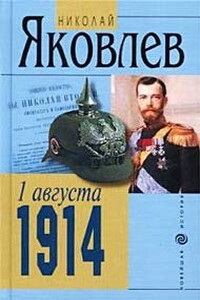
Эта книга, вышедшая двумя изданиями в 1974 г. в издательстве «Молодая Гвардия», вызвала острую полемику, ибо впервые в ней частично на основании архивных документов показывалась роль масонов в эпохальных событиях в России в 1917 г. Настоящее издание серьезно доработано и расширено, в том числе за счет обширного «Приложения», в котором настало время рассказать, почему крестным отцом книги был председатель КГБ СССР Ю.В. Андропов, попытавшийся положить начало изданию исторических сочинений без цензуры.
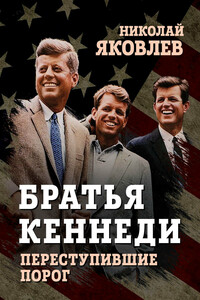
Президента Джона Кеннеди и сенатора Роберта Кеннеди постигла одна судьба – жизнь их трагически оборвалась. Старший из братьев, Джон, погиб, пробыв в Белом доме тысячу с небольшим дней. Роберт пал на относительно короткой дистанции на пути к возможному занятию президентского кресла – до выборов оставалось около 150 дней. Что это – случайность или заговор? Автор пытается дать ответ. В книге масса биографических подробностей, разбираются различные версии мотивов убийства братьев Кеннеди.
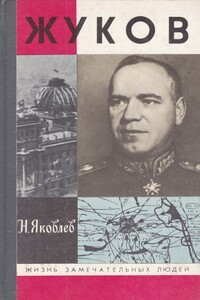
Это первая биография нашего национального героя, маршала Г. К. Жукова, принадлежащая перу крупного советского историка, профессора Н. Н. Яковлева, написанная на уровне современных знаний о Великой Отечественной войне. Книга вводит во внутренний мир героя, великого полководца, спасителя Отечества; в ней использованы новые архивные материалы. Сокращенный вариант книги автор включил в свой трехтомник избранных произведений, увидевших свет в 88—90-х годах. Перед читателем — переработанная и значительно расширенная книга.
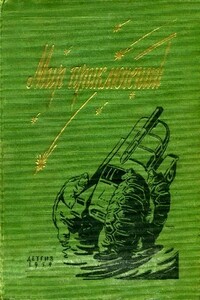
Мир приключений №5: Сборник фантастических и приключенческих повестей и рассказов / Ленинград: Детская литература, 1959.СОДЕРЖАНИЕ:Г. Матвеев.После бури. Повесть. Рисунки В.Орлова....3.Е. Андреева.Остров сокровищ. Очерк. Рисунки А.Скалозубова....81.Ф. Зубарев.В дороге. Рассказ. Рисунки Л.Селизарова....95.В стране зверей. Перевод В.Голант....104.Ф. Зубарев.Андрейка. Рассказ. Рисунки В.Скрябина....105.Современница динозавров. Перевод В.Голант....114.В дебрях Новой Гвинеи. Перевод В.Голант....116.Сердитые носороги. Перевод В.Голант....118.Г.
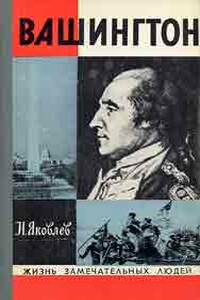
Вашингтон был первым президентом Соединенных штатов Америки. Он стоял у истоков создания заокеанской республики, он возглавлял армию, боровшуюся за независимость с английскими колониальными войсками, он был признанным вождем американской буржуазной революции.Вашингтон был человеком своего класса и своего времени. Ему присущи слабости и ограниченность поднимающейся буржуазии, тем не менее он был сильным и разносторонне талантливым человеком, сыгравшим огромную роль в борьбе американского народа за независимость.
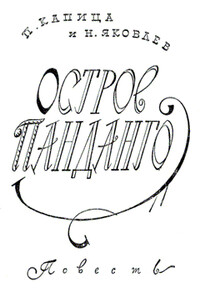
В книге рассказывается история главного героя, который сталкивается с различными проблемами и препятствиями на протяжении всего своего путешествия. По пути он встречает множество второстепенных персонажей, которые играют важные роли в истории. Благодаря опыту главного героя книга исследует такие темы, как любовь, потеря, надежда и стойкость. По мере того, как главный герой преодолевает свои трудности, он усваивает ценные уроки жизни и растет как личность.
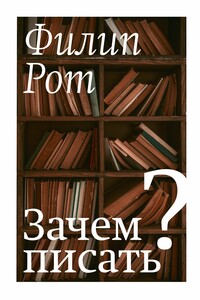
Сборник эссе, интервью, выступлений, писем и бесед с литераторами одного из самых читаемых современных американских писателей. Каждая книга Филипа Рота (1933-2018) в его долгой – с 1959 по 2010 год – писательской карьере не оставляла равнодушными ни читателей, ни критиков и почти неизменно отмечалась литературными наградами. В 2012 году Филип Рот отошел от сочинительства. В 2017 году он выпустил собственноручно составленный сборник публицистики, написанной за полвека с лишним – с I960 по 2014 год. Книга стала последним прижизненным изданием автора, его творческим завещанием и итогом размышлений о литературе и литературном труде.
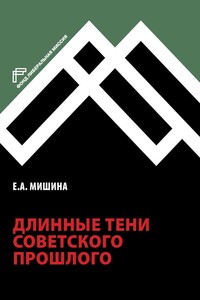
Проблемой номер один для всех без исключения бывших республик СССР было преодоление последствий тоталитарного режима. И выбор формы правления, сделанный новыми независимыми государствами, в известной степени можно рассматривать как показатель готовности страны к расставанию с тоталитаризмом. Книга представляет собой совокупность «картинок некоторых реформ» в ряде республик бывшего СССР, где дается, в первую очередь, описание институциональных реформ судебной системы в переходный период. Выбор стран был обусловлен в том числе и наличием в высшей степени интересных материалов в виде страновых докладов и ответов респондентов на вопросы о судебных системах соответствующих государств, полученных от экспертов из Украины, Латвии, Болгарии и Польши в рамках реализации одного из проектов фонда ИНДЕМ.
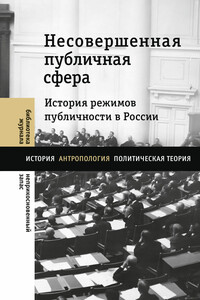
Вопреки сложившимся представлениям, гласность и свободная полемика в отечественной истории последних двух столетий встречаются чаще, чем публичная немота, репрессии или пропаганда. Более того, гласность и публичность не раз становились триггерами серьезных реформ сверху. В то же время оптимистические ожидания от расширения сферы открытой общественной дискуссии чаще всего не оправдывались. Справедлив ли в таком случае вывод, что ставка на гласность в России обречена на поражение? Задача авторов книги – с опорой на теорию публичной сферы и публичности (Хабермас, Арендт, Фрейзер, Хархордин, Юрчак и др.) показать, как часто и по-разному в течение 200 лет в России сочетались гласность, глухота к политической речи и репрессии.

В рамках журналистского расследования разбираемся, что произошло с Алексеем Навальным в Сибири 20–22 августа 2020 года. Потому что там началась его 18-дневная кома, там ответы на все вопросы. В книге по часам расписана хроника спасения пациента А. А. Навального в омской больнице. Назван настоящий диагноз. Приведена формула вещества, найденного на теле пациента. Проанализирован политический диагноз отравления. Представлены свидетельства лечащих врачей о том, что к концу вторых суток лечения Навальный подавал признаки выхода из комы, но ему не дали прийти в сознание в России, вывезли в Германию, где его продержали еще больше двух недель в состоянии искусственной комы.

К сожалению не всем членам декабристоведческого сообщества удается достойно переходить из административного рабства в царство научной свободы. Вступая в полемику, люди подобные О.В. Эдельман ведут себя, как римские рабы в дни сатурналий (праздник, во время которого рабам было «все дозволено»). Подменяя критику идей площадной бранью, научные холопы отождествляют борьбу «по гамбургскому счету» с боями без правил.
